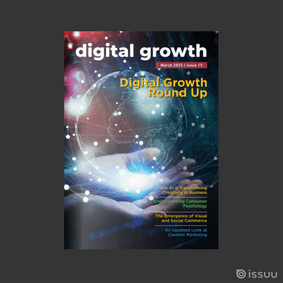
AI isn't the job killer we thought it was. In fact, human-AI collaboration is the key to unlocking a more productive and fulfilling future of work. Artificial intelligence in the world of work is nothing new. In manufacturing and agricultural settings, automation has a long history of replacing blue-collar workers with doing simple, repetitive tasks.1 But since the newer generative AI tools have hit our screens, the internet is once again buzzing with heightened fear and uncertainty about machines taking over jobs. It’s unsurprising given how much this technology has progressed, particularly in the sphere of ‘creative’ work, but is this fear truly justified? Recent studies show that the relationship between AI and jobs is more nuanced than we might think.
According to the World Economic Forum, by 2025, AI adoption and automation will have led to a net increase of 12 million jobs in the world's 15 largest economies.2 A similar survey by Deloitte found that 51% of executives believe that AI and automation will increase their company's workforce in the next three to five years.3 These numbers tell us that the impact of AI on jobs is not necessarily bad. In fact, AI has the potential to create new job opportunities and help workers be more productive and efficient.
In this article, we'll explore the reasons why you shouldn't worry about AI taking your job and instead should embrace the opportunities it presents. We'll also look at AI’s limitations, the potential for AI to augment human labour, and the potential for new job creation. So let's dive in and discover why the future of work is brighter than you may have thought.
Technological progress and job creation in context
Historically, technological development has created more jobs than it’s destroyed. The invention of cars or personal computers created new job opportunities in manufacturing, software development, and IT support. These advancements displaced some workers, but they ultimately created more jobs in the long term. In a similar fashion, AI may displace some workers in certain industries, but it has the potential to create new jobs and opportunities in others. We should approach this new era with optimism rather than fear and embrace the opportunities it presents.
Why machines won’t replace humans
It’s true that AI has made major progress in recent years, but there are still clear limitations to its ability. For example, AI struggles with real creativity, complex decision-making, critical reasoning, and empathy. These skills can’t be discounted since they’re essential in many roles that require a human touch, such as doctors, teachers, and artists. AI can analyse swathes of medical data to help diagnose diseases, but it lacks the empathy and bedside manner of a human doctor. Similarly, while AI can provide language translation services, it can't match a human translator's flair for nuance. And while AI can make music or art with the right prompt, it doesn’t have the same emotional range, depth, and complexity as a human artist. Ultimately, there will always be certain jobs that require human skills and expertise.
As AI continues to evolve, it will likely become better at handling difficult tasks and making harder decisions, but it will never truly be able to replace the unique perspectives or abilities of human workers. So, rather than fearing the rise of AI, we should see it as a tool that can make our lives a little easier. Whether that’s by helping us become more productive and efficient, or leaving us more time to focus on the tasks that require our uniquely human skillset.
How AI can help augment our work lives
AI has the potential to drive up labour productivity by up to 40% by 2035, according to a study by Accenture.4 As AI systems get adopted and become a workplace norm, they can help workers automate tasks and make better, faster decisions. Before you start to think that that’s a win for the machines, it's important to remember that AI can actually be used to augment human labour, not replace it.
AI tools can help us be more productive and efficient in our jobs. For example, using AI, we can analyse large amounts of data and make predictions that might otherwise have evaded us. As mentioned earlier, AI can also help doctors analyse complex medical images or predict the likelihood of certain diseases based on a patient's genetic information. In finance – an industry where professionals must be quick and agile – AI can actually help investors analyse market trends and make investment decisions faster.
One of AI’s biggest benefits is that it can take on repetitive or dangerous tasks, freeing human workers to focus on more creative or complex tasks that require their unique skills and expertise.
So, rather than seeing AI as a threat to human labour, we should see it as a tool that can augment our abilities and help us work more effectively. Through collaboration, we can create a future where humans and AI work together to achieve even greater things.
The potential for new jobs in the AI industry
As AI technology continues to shift and evolve, there’s great potential for new job creation within the AI industry itself. According to a report by LinkedIn, AI specialist was the fastest-growing job title in the United States in 2020, with a 74% increase in job postings over the previous year.5 Data scientists, AI engineers, machine learning experts, and more recently, prompt engineers are just a few examples of the kinds of jobs that are likely to be in high demand as the technology becomes more widespread across industries. Tech giants like Google and Microsoft have been investing heavily in AI research and development, and are creating new jobs in areas such as AI engineering, machine learning, and data science.
To make sure we're ready to take on the challenges and opportunities of the AI era, we need to invest in education and training programmes for the next generation of experts, so that we have a workforce that is well-equipped to succeed in the exciting and constantly changing world of AI.
Ultimately, the future of work is not a zero-sum game where humans and AI are competing for jobs
The bottom line? You shouldn’t worry about AI taking your job. Rather welcome the idea of teaming up with AI to shape the future of work. Technology has advanced rapidly in the past, creating more jobs than it disposed of, and the AI industry is no exception. At the end of the day, the future of work is all about collaborating with AI – each of us playing to our strengths – to create work that's more efficient, productive, and enjoyable for everyone involved.
As we navigate the exciting and ever-changing world of AI, it's important for businesses to stay adaptable and forward-thinking. At NEXA, we understand the unique challenges and opportunities that this new era presents, and we're dedicated to providing fresh, innovative strategies that can give our clients a competitive edge. Whether you're looking to take advantage of new AI technologies or simply want to stay ahead of the curve, our team is here to help. Reach out to us today to learn more about how we can support your business in this exciting new space.
- World Economic Forum, A short history of jobs and automation. Sep, 2020
- WeForum, Recession and Automation Changes Our Future of Work, But There are Jobs Coming, Report Says. Oct, 2020
- Deloitte, Talent and workforce effects in the age of AI. March, 2020
- Accenture, Newsroom. Sep, 2016
- LinkedIn, Emerging Jobs Report. 2020
%20(1).png?width=2701&height=607&name=BRC_NEXA_LOGO_BLACK%20%26%20VIOLET%20(1)%20(1).png)
%20(1).png?width=2701&height=607&name=BRC_NEXA_LOGO_WHITE%20(2)%20(1).png)















Comments